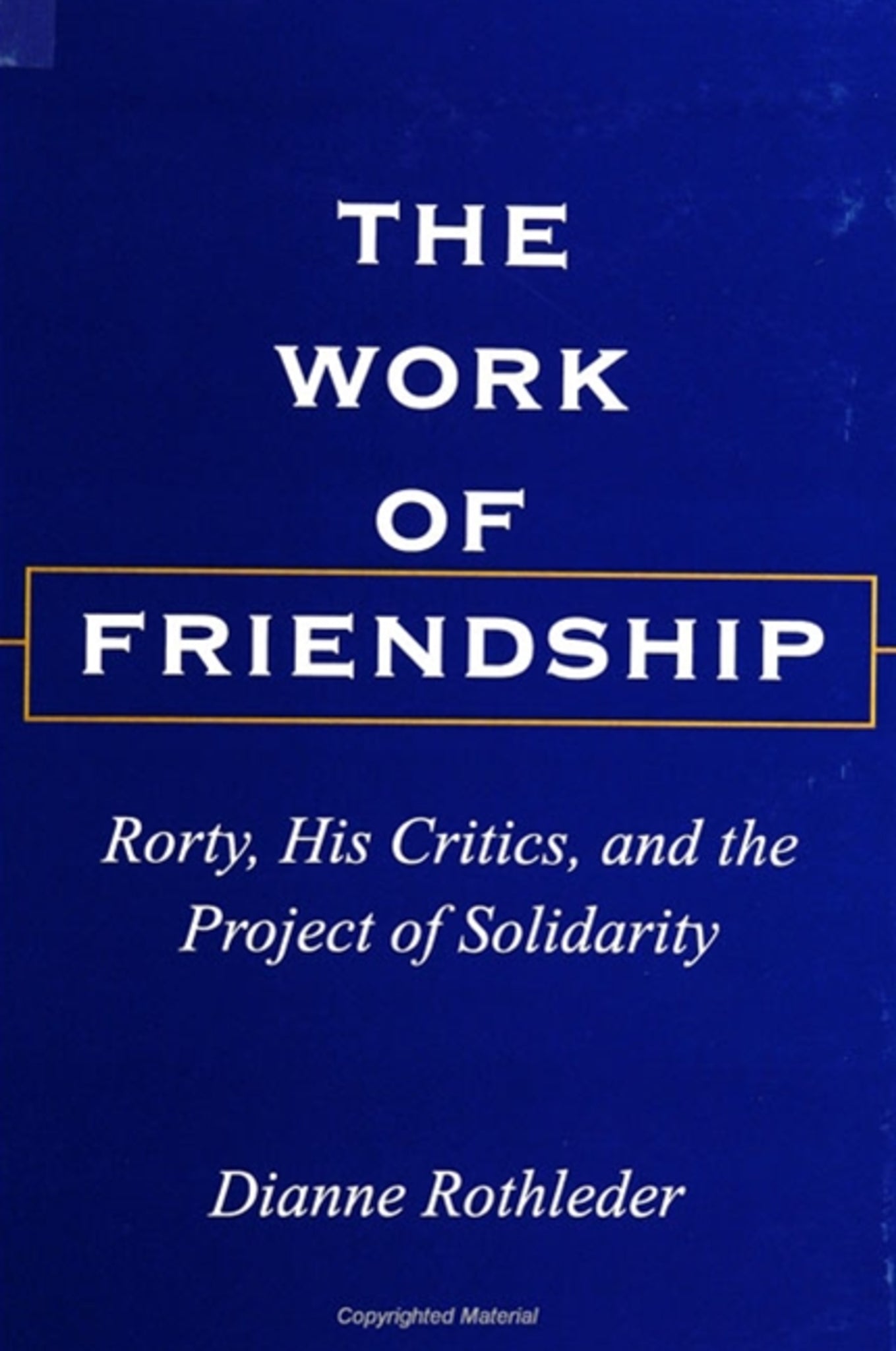We're sorry. An error has occurred
Please cancel or retry.
The Work of Friendship

Some error occured while loading the Quick View. Please close the Quick View and try reloading the page.
Couldn't load pickup availability
- Format:
-
01 April 1999

Develops a theory of friendship as a space that is neither public nor private.
This book provides an incisive reading of the problems with Rorty's public/private distinction, his valorization of the figure of the strong poet, and his conception of solidarity. Rothleder argues that Rorty lacks a conception of friendship which would rescue him from the isolation inherent in the life of a strong poet. She draws on ideas in contemporary continental philosophy, education, and feminism to develop a model of friendship that would achieve Rorty's goal of ending humiliation without invoking the problematic figure of the strong poet.


"The Work of Friendship goes right to the heart of current debates regarding the need for philosophers to overcome not only what Rorty criticizes as epistemology, but also what Rorty fails to address, namely the problem of philosophical detachment from social theory and praxis. The engaging style brings the personal into the political and beautifully exemplifies what the author argues is missing in Rorty. More specifically, Rothleder uses satire to bring Rorty's personal fantasies into the public space for open debate. She does not simply critique Rorty without offering her own alternative vision for a society that would do what Rorty's philosophy implies that any society ought to do, i.e., open a public space that is not cruel." — Cynthia Willett, Emory University
"This book is very compelling. Rothleder presents a sustained and incisive critique of Rorty's public/private split and offers parsimonious and complementary linkages of often antagonistically rendered theoretical positions (Hegel/Kant; Habermas/Lyotard, etc.) to support her argument." — Andrew R. Smith, Edinboro University
Acknowledgments
Introduction
1. Analytic Rorty, Psychoanalytic Theory, and the Question of the Other
2. Possible Worlds and Narrative Convention
3. Negative Solidarity
4. In Between Circus Freaks and Dead Fathers
5. Friendships of Play
Notes
Bibliography
Index



